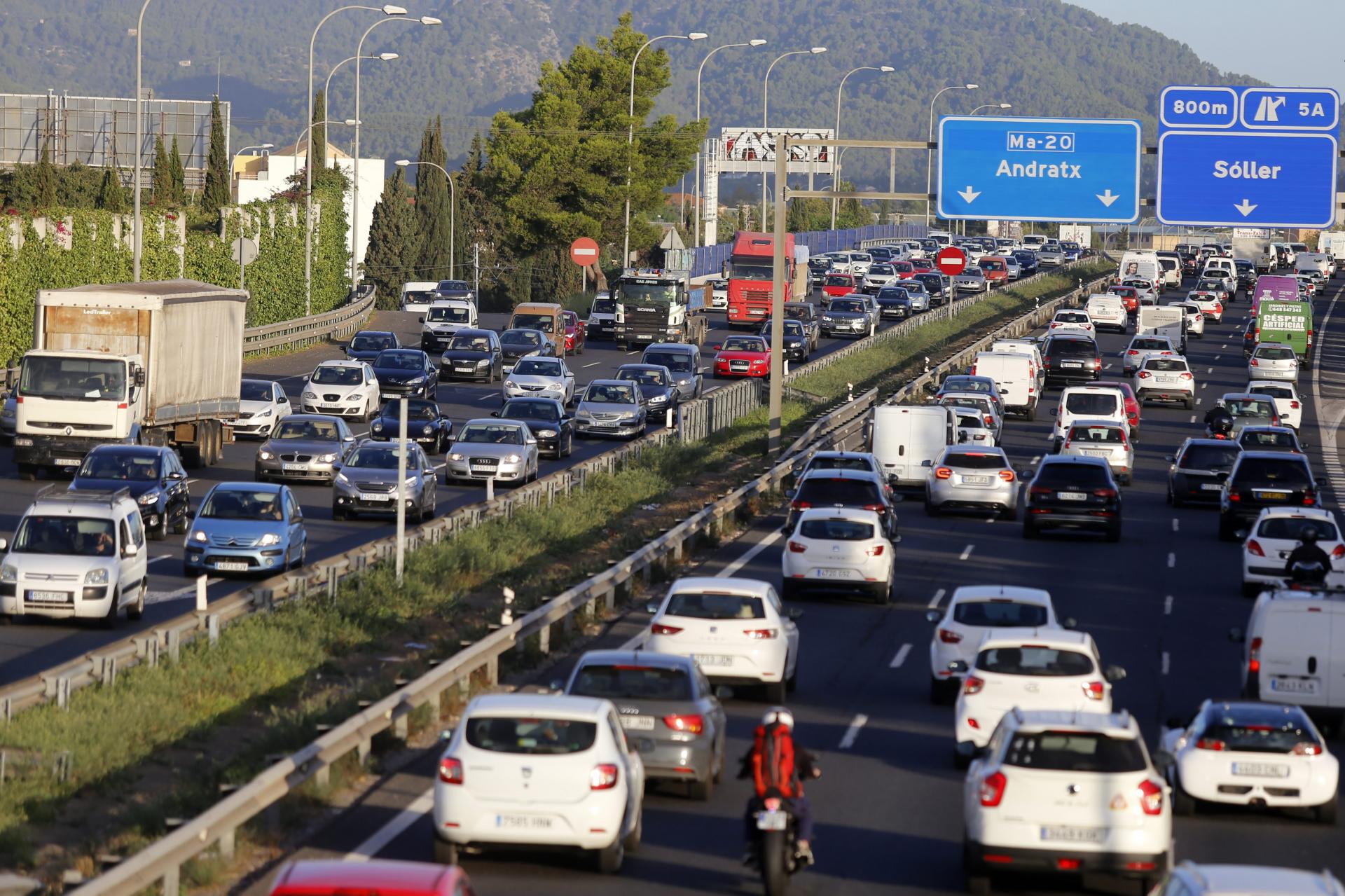By Andrew Ede
Watch out, drivers, here come vehicle limitations. That’s limitations to the number of vehicles on roads. Which roads? Seemingly just the main roads, including the motorways, but start with the main roads and who knows what might follow.
The vice-president of the Balearics is Juan Pedro Yllanes. A high court judge on extended sabbatical, his ministerial portfolio includes energy transition, and he has shown himself to be especially passionate about this transition - renewable energy (aka solar) and removing diesel and eventually petrol vehicles from the roads of the islands are two aspects of this passion.
Last Friday, Yllanes made a presentation about financial aid to buy electric cars. During this presentation he was asked about vehicle limitations. Presumably not for electric vehicles (oh that there were that many), but for the contaminant-emitting diesel and petrol ones. Or would there be limitations on electric vehicles as well? Reducing pollution would be a reason for limiting vehicles but so also would be reducing “unsustainable pressure on the territory (the islands) from so many vehicles”.
The Balearic government, the minister said, was not planning a reduction in traffic but he added that this couldn’t be ruled out. And if there were to be such a reduction, how would this be effected? The minister didn’t elucidate, he just stated what seemed to be an ideal situation, and whether this really is a government view or his alone was difficult to determine.
With Yllanes, there is a sense that he is an idealist. This is no bad thing, especially in the context of climate change, but there is also the pragmatic to consider. Were the number of vehicles on main roads and motorways to be limited, what would be the system?
Congestion charges? Only being able to use a car on alternative days? Tolls? The latter no, unless there were to be a drastic about-turn in government philosophy, the ending of the Soller Tunnel toll having been greeted with the clear statement that Majorca’s roads would always be free. A Spanish government plan for tolls has been met with outright rejection.
The government’s big bets are electric vehicles and public transport, with the latter ultimately all - it is hoped - to be green.
The number of electric cars on the roads is an unknown - unknown by the government. However, around six per cent of new cars purchased per annum are electric. In seeking to increase this number, the government has been offering financial aid to buyers - up to 7,000 euros if an old car is scrapped or 4,500 euros if it isn’t. So far this year, according to the minister, some 1.7 million euros of an envisaged 2.9 million euros for 2021 have been advanced. If this funding has been for scrapped cars, it equates - at a maximum level of grant - to 243 cars.
There is, quite clearly, a hell of a long way to go, as there also is with the infrastructure. In four years time, the government forecasts there being 1,000 charging points, twice as many as at present, plus those which are private. The current cost of electricity is a negative in promoting electric mobility, while there is also the question as to the capacity of a grid to supply the electricity were there to be anything like the number of electric vehicles that the government would love to see.
I absolutely get the case for electric and green mobility. Everyone does, I would have thought. But everyone is acutely aware of the present obstacles. Reaching a level of vehicle usage that will be compatible with the goals of sustainable mobility and of the pressing climate emergency will take years. In the meantime, therefore, there is the notion of limiting vehicles, with Yllanes having stressed the particular need for this during the main tourism season.
There are already schemes, the one for Formentor being the most obvious. This is reliant on a public transport system taking care of demand, and yet there have been complaints that it does not. Formentor is in any event a specific case, for which barrier to entry is easy enough to implement. The same cannot be said for other roads. What is a practical solution for limiting vehicles?
The government is currently not planning limitations, but this may be because the government doesn’t know how this could be done in practical terms.
By 2026, according to the government’s strategic mobility plan, the use of the car will come down from 56% of all journeys to 36%, the use of public transport will rise to 13%, with the rest being on foot (42%) or on bikes (nine per cent). Ultimately, this all boils down to financing, the European Next Generation funds now an aspect of this. Europe is committed to sustainable and green mobility, as is the Balearic government. But how long, in terms of practicality, is this going to take? Does anyone have any idea?

August 17, 2021 at 03:16PM
via Majorca Daily Bulletin News Feed read more...


0 Comentarios